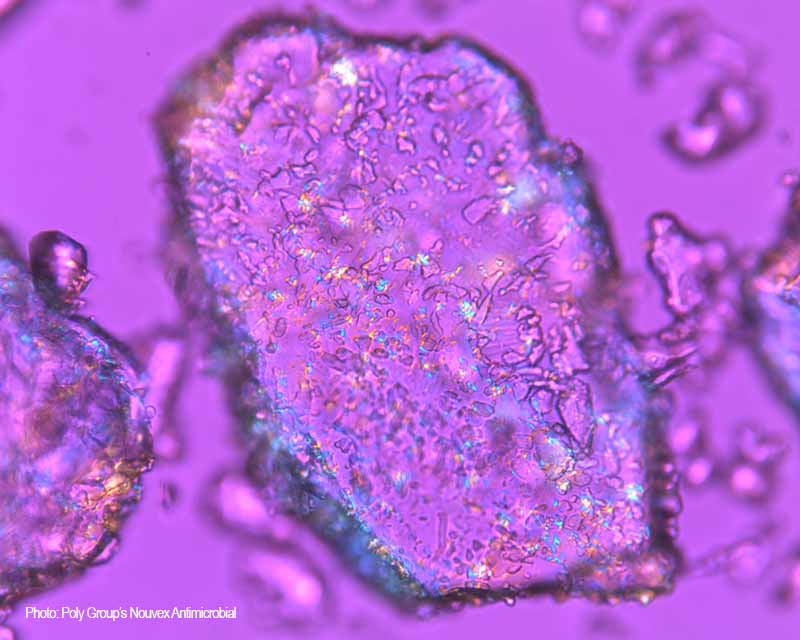This article originally published on: Thursday, October 29th, 2020
Written By: Kylie Veleta, Business of Health Reporter & Special Projects Editor – Inside Indiana Business with Gerry Dick
WEST LAFAYETTE and NEW ALBANY – It won’t be long until Americans see antimicrobial tray tables on their flights, antimicrobial seats at sports stadiums and antimicrobial features in their car’s interior—and it all centers on a technology invented at Purdue University, commercialized in southeast Indiana and soon manufactured there as well. The germ-killing molecular technology, called Nouvex, can be embedded in a long list of end products to make them antimicrobial, and the pandemic has created a tsunami-sized wave of interest that a small Hoosier startup is riding to the marketplace.
“Usually, when you dilute the active ingredient of something, it makes it less active; what happened instead is, it became biocompatible and more active. Hence, Nouvex was born,” says Youngblood. “It was so drastic that we had trouble believing how good it was at first, because it was like nothing else we’d seen in terms of activity in killing bacteria—and nasty bacteria too: pathogenic bacteria, drug-resistant bacteria, all types of stuff.”

